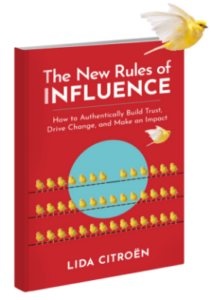Graduation is coming soon. Start building your personal brand today!
Senior year is an exciting time on college and university campuses. For college seniors planning to find a job after graduation, it is important  to consider what that job will be and make yourself findable to potential employers.
to consider what that job will be and make yourself findable to potential employers.

Here are four important things you can do now to ensure your positioning in the job market makes you stand out:
1. Define your goal and set a strategy
That first job after college can feel like a daunting objective. Your parents are encouraging you to follow your dreams…yet… they also want to see you employed and independent. Are those two goals mutually exclusive?
Defining your job goal will closely tie to the industry or career you are pursuing. For instance, if you want to be a journalist, it would help if your first job was in writing or editorial work. Your strategy might include getting connected to influencers and decision makers in journalism or publishing; demonstrating your abilities (perhaps you’ll write a blog, publish an article, or write an essay showing your skills); and preparing a portfolio of your college work that highlights your abilities and talents.
Then, you will need to get more detailed in your plan: Perhaps your first step will be to get lists of key publications you’d like to work for, identifying the right person to contact for an informational interview (see number 3 below), and reading through their website to understand the opportunities and challenges facing that publication.
Start as broad as you can with the goal (“I want to be a writer for a magazine like Fast Company”) and then as specific as you can with the tactics (research, connections, opportunities, etc.). Include a timeline so you can hold yourself accountable and remain focused as graduation celebrations distract your attention.
2. Make yourself findable online
As a student, you likely use social media extensively – from keeping up with your friends’ lives, sharing the happenings of your day, and reaching a global network of contacts who share your interests and passions. Maybe you are also reading news, following trends (and rumors), and voicing concern about world events via social media. As you transition out of college, your participation online will change, so start preparing your online presence now! Recruiters, employers, and hiring managers scour online profiles to find potential candidates, evaluate them, and find consistency in their values and talents. Platforms like Facebook and LinkedIn are great for you to attract the attention of a hiring manager who might be looking for someone just like you!
Follow these rules to make yourself findable online:
- Create a profile that represents you genuinely. From your headshot to your summary of your experiences and goals, make sure you represent your goals and values authentically. Social media is not the place to try to be someone you’re not. Recruiters are looking for real people with real dreams and credible experiences.
- Work your online networks. Maybe you were shown how to set up a LinkedIn profile in your business class, but is it working for you? Tools like LinkedIn, Google+, and Twitter are best used for business and career rather than for following celebrity antics. Have a plan for sharing content, adding your voice to important conversations, and building your visibility in key groups and forums where recruiters for companies in your target industries participate.
- Consider that everything you post is public. Nothing typed into or shared on a computer, smart phone, or tablet is private – ever! Anyone can share a screen shot of your instant message or “offline” post. Assume the hiring manager for your dream job is seeing that photo… would they still want to hire you?
3. Ask for informational interviews
Instead of asking for a job, consider asking professionals for informational interview. This meeting is an opportunity for you to spend 15-30 minutes with people in the industries, companies, or jobs you want to pursue, asking them about their field, career, and insights. Because you are not asking for employment, it is a more relaxed meeting where you might inquire: “How did you get into this career?” or “Where do you see this industry headed over the next 10 or 25 years?” It is important that you do not turn it into a job interview. Professionals often appreciate the conversational nature of an informational interview and will ask you about yourself, your goals, and your career aspirations. If they choose to turn the meeting into a job interview, be prepared for it. Never miss the opportunity to share your objectives and have a resume handy.
4. Enlist champions
Use the contacts you make in the informational interviews, online connections, and professors and mentors you connect with in school to become your cheering section. Ask them to write recommendations (printed and on LinkedIn), introduce you to key contacts that might be helpful to your strategy, and endorse you when asked about your talents and abilities. You are creating a set of champions who will likely support you throughout your career, not just help you get that first job. Nurture the relationship with your champions – send handwritten notes (not emails or text messages) to say thank you, keep in touch, and let them know what you’re up to (successes and frustrations). Keep the confidence and energy high in your communications with them; people want to back a winner, so make sure you communicate that you are a good investment for them to support.
While graduation day might seem far away, the time will pass very quickly! Instead of waiting until you’ve moved away from college to start planning for your job, begin today!

